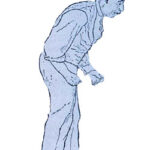 Medical treatments of Parkinson’s disease are intended reduce motor symptoms, but many patients still report a deterioration of their daily lives.
Medical treatments of Parkinson’s disease are intended reduce motor symptoms, but many patients still report a deterioration of their daily lives.
Researchers at IRCCS Neuromed, in Pozzilli, Italy hypothesized that participation in theater might reduce clinical disability and improve quality of life.
First, the details.
- 20 patients with stable, moderate Parkinson’s disease, and taking L-dopa and L-dopa agonists were assigned to a treatment group.
- A theater program in which patients were required to participate
- Physiotherapy (control group), the most common nonpharmacological treatment for Parkinson’s rehabilitation.
- Patients in both groups were evaluated at the beginning of each year, using 5 clinical rating scales.
And, the results.
- The theater patients showed progressive improvement.
- At the end of the 3rd year, they showed significant improvements in all clinical scales.
- Conversely, the control patients didn’t exhibit significant improvement.
The bottom line?
The authors tell us this is the “first scientific evidence that active theater, coupled with conventional medical treatments, represents a valid complementary therapeutic intervention for PD treatment.”
It’s not clear what type of theater was used. Because it’s an Italian study we’ll assume music was involved.
Accordingly, other researchers in Italy have reported significant benefit with music therapy in patients with Parkinson’s disease.
- Reduced overall bradykinesia (slowed ability to start and continue movements)
- Emotional functions
- Activities of daily living and in quality of life
More than a decade ago, researchers at the Department of Music, Theater, Dance, at Colorado State University, in Ft. Collins, looked at the relationship between rhythm, music, and motor function.
- Rhythm and music are not entirely synonymous terms.
- Rhythm constitutes 1 of the most essential structural and organizational elements of music.
- When considering the effect of music on human adaptation, the profound effect of rhythm on the motor system strongly suggests that music is the essential element relating music specifically to motor behavior.
- There’s evidence that the interaction between auditory rhythm and physical response can be effectively harnessed for specific therapeutic purposes in the rehabilitation of persons with movement disorders.
Perhaps the positive results reported in this study are a manifestation of this relationship.
12/11/10 19:11 JR